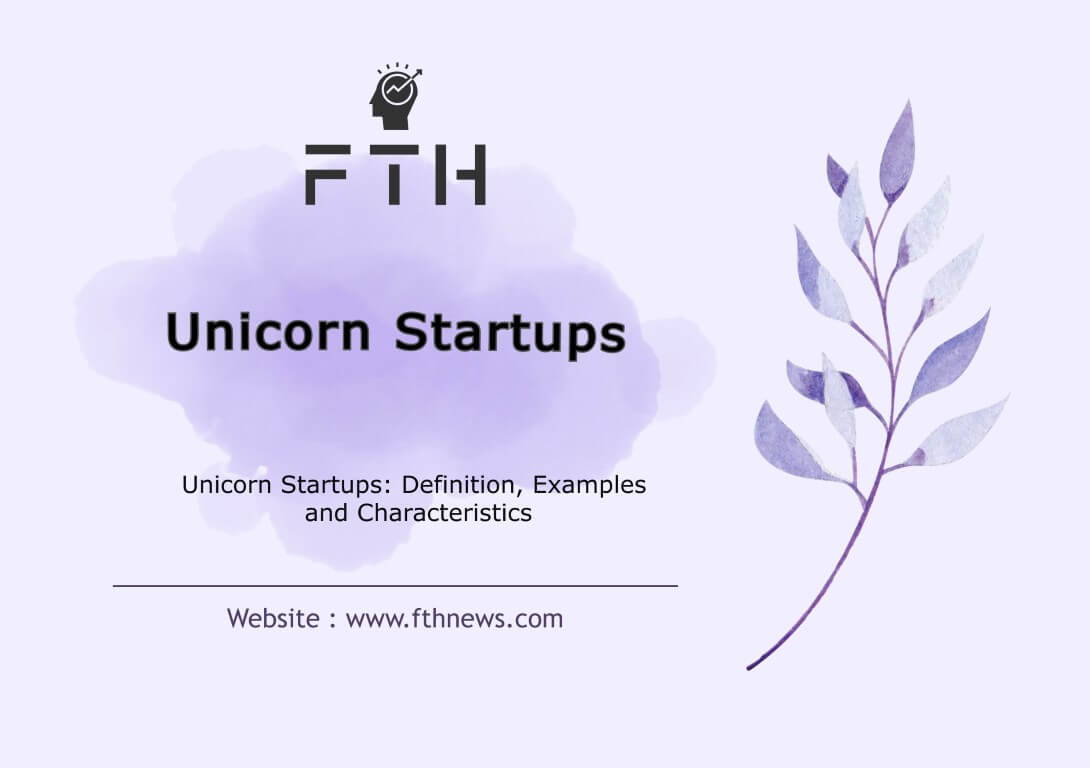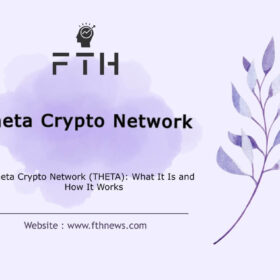
Unicorn Startups: Definition, Examples and Characteristics
It’s no surprise that every entrepreneur aspires to cultivate a Unicorn Startups. You’ve likely discussed well-known unicorn companies like Uber, Airbnb, Snapchat, or Pinterest with friends, analyzing them from various angles. However, what often goes unnoticed is the essence of the term “unicorn startup.”
What Defines a Unicorn Startup?
A unicorn, in the investment fund realm, refers to a startup with a staggering total business value exceeding $1 billion. Coined and popularized in 2013 by Eileen Lee, a venture capitalist and founder of CowboyVC, the term emerged when she identified 39 startups individually valued at over one billion dollars. Lee, considering these companies as rare as unicorn horns, aptly christened them “unicorn startups.”
Since 2013, the definition of a unicorn startup has remained constant, with the only notable change being the burgeoning number of these startups globally—currently standing at 393.
Eileen Lee’s motivation to understand the feasibility of discovering and funding these promising startups led to extensive research in 2013. She found that merely 0.07% of venture-backed startups surpassed the $1 billion mark. In presenting her findings, she introduced the term “unicorn startup” to precisely encapsulate this exclusive group. Lee highlighted the rarity of these startups, emphasizing that while thousands of tech startups emerge yearly, only a select few ascend to unicorn status.
While the term may draw inspiration from fiction genres and resonate with science fiction and fantasy enthusiasts, unicorn startups have firmly entrenched themselves in Silicon Valley.
Role of Information and Communication Technology (ICT) in Unicorn Startups
Critical to unicorn startups is the role of Information and Communication Technology (ICT). Distinguishing themselves from Small and Medium Enterprises (SMEs), startups are burgeoning enterprises with innovative and scalable business models. This distinctiveness enables startups to achieve maximum growth with minimal third-party investor costs, a departure from traditional investors like “business angels,” who typically play less active roles in startup income and management.
On average, startups take seven years to attain unicorn status, and less than one percent of startups have the potential to achieve this during their early stages. Before delving into the characteristics and reasons for the success of unicorn startups, it’s worthwhile to note:
- 87% of unicorn products belong to the software category.
- 50% operate in retail, technology, and financial services.
- 62% of unicorn businesses operate in the Business-to-Consumer (B2C) space.
- The minimum time to break the billion-dollar barrier is five years.
The Market Impact of Unicorn Startup
While the numbers are impressive, the narratives behind billion-dollar stories offer invaluable lessons. Examining some of the most renowned unicorn startups sheds light on how they transformed the market.
Airbnb: Established in 2008, Airbnb revolutionized accommodation, redefining the sharing economy.
Uber: Founded in 2009, Uber pioneered a new era in transportation, currently operating in 785 metropolitan cities worldwide.
Spotify: Since its 2006 inception, Spotify has made publishing music and podcasts more accessible, becoming one of the world’s most famous unicorn startups.
Each of these unicorn startups shares common traits:
- They drive disruptive innovation.
- They are pioneers in emerging markets.
- They prioritize the consumer.
Understanding and embracing these three characteristics can be transformative for your business, potentially propelling it into unicorn status. Consider how your venture aligns with these game-changing features.
Characteristics of Unicorn Startup
Fortunately, the proliferation of unicorn startups allows us to discern common features and extract meaningful insights. Let’s delve into these characteristics with a more detailed approach:
1. Youthful Dynamism:
- Unicorn startups are typically young enterprises seizing opportunities in small or nascent markets. The average age of their workforce hovers around 30 to 40 years.
2. Growth Orientation:
- These startups exhibit a broad vision and set clear, concrete goals, showcasing a robust orientation towards growth.
3. Innovation at the Core:
- Innovation is the hallmark of unicorn startups, driven by emerging technologies that enhance their operational efficiency and communication. Leveraging social media is a common strategy for gaining recognition in this dynamic landscape.
4. Scalability:
- Unicorn startups possess the ability to rapidly increase productivity while concurrently reducing costs, showcasing a remarkable scalability factor.
5. Financial Prowess:
- A distinct skill of unicorn startups lies in their capability to attract investors and secure private equity without the need to go public.
6. Customer-Centric Business Model:
- The primary strategy of unicorn startups revolves around meeting the needs of end consumers, emphasizing product quality and customer satisfaction.
Becoming a Unicorn Startup: Rules and Principles
Achieving the coveted status of a unicorn startup may seem daunting, but as someone intimately familiar with the entrepreneurial journey, I believe it’s an achievable goal. Here’s a simplified guide that underscores the essence of any startup’s primary function—to solve a problem that customers want resolved:
- Identify a Problem:
- Pinpoint an existing issue, for instance, environmental pollution.
- Consider the Problem:
- Understand the dynamics of the problem; in this case, people often drive short distances in vehicles.
- Reverse the Problem:
- Devise strategies to dissuade people from relying on their vehicles daily for short distances.
- Provide a Solution:
- Develop a solution that aligns with your findings, such as offering a free electric bicycle rental service.
- Implement the Solution:
- Establish rental stations providing affordable, eco-friendly bicycles.
- Create Added Value:
- Enhance your offering with features like inexpensive rental stations and environmentally compatible bicycles.
- Customer Journey:
- Visualize and document the entire customer journey, addressing questions like station locations, software functionality, battery charging, and usage restrictions.
- Confirm the Idea:
- Utilize proof of concept or prototypes to gather feedback from the target audience. Address legal requirements in the relevant city or region.
- Cost Estimation:
- Assess costs associated with infrastructure development, bicycle prices, battery replacement or recharging, application development, and more.
Emulating Unicorn Success in Your Sector
Whether you’re a startup or entrepreneur in the software, retail, technology, or financial sectors, here are steps you can take to emulate the success of unicorn startups:
Strategies for Unicorn Success
1. Technology as the Backbone:
- Unsurprisingly, a unicorn startup must operate in the realm of information technology. Beyond just offering a software-oriented solution, your approach should encompass the strategic utilization and scaling of related technologies. Leverage advancements in analytics, cloud computing, and artificial intelligence to sustainably grow and automate your business operations. This not only optimizes resource utilization but also enhances the user experience, fostering positive customer relationships.
2. Pursue Distinction with MVP Development:
- Differentiation is key. Begin with a Minimum Viable Product (MVP) that addresses common problems with an innovative, simple, and cost-effective solution. Unicorn startups often disrupt the market by providing alternatives that outshine pricier options. Think creatively to offer a superior solution, and as your unique offering gains popularity, watch your market share grow, potentially positioning you as a market leader.
3. Customer-Centric Approach:
- Every endeavor should be centered around your customers. Remember, it’s not just your software; it belongs to your customers. Develop a robust value proposition that articulates how and why your product adds value to their lives. Engage with your ideal customers during initial iterations and continually seek feedback to adapt to evolving needs. Building a core user base early on is crucial before expanding to the wider market.
4. Embrace Agile Development for Unicorn Iteration:
- Mimic the agility of a unicorn by iterating quickly. Focus on core functionality to expedite product launches and gauge user response. Agile development entails a continuous cycle of development, testing, and refinement based on user needs. This proactive and reactive approach allows you to scale development efficiently, dispelling the misconception that iterative development delivers an unfinished product. Instead, it enables ongoing improvement and adaptation to customer expectations.
5. Investor Attraction Balancing Act:
- Attracting investors requires a delicate balance. Before seeking investment, demonstrate traction and provide a solid growth forecast. Timing is crucial; your product should be market-ready to showcase demand convincingly. Like fishing with bait, show that your product or service has market acceptance and is poised for investment.
6. Sustainable Growth Over Profit:
- Unicorn status often correlates with sustainable growth rather than immediate profitability. Establish a clear roadmap for growth, coupled with a willingness to iterate and fail fast. A typical tech startup takes 6 to 10 years to mature. Prioritize growth over profit in the initial stages, cultivating a sustainable business model. Ensure your team aligns with your business goals by hiring individuals who share the same values as your startup scales.
Nurturing the Dream of Unicorn Success
While there’s no magic formula for achieving unicorn status, nurturing the dream is essential. Many unicorn startups embarked on their journeys with specific strategies, and technology entrepreneurs deserve the support necessary to build stable and sustainable businesses.
Most Valuable Unicorn Startups
As of August 2021, the landscape of unicorn startups boasts an elite group of the most valuable players globally. Here’s a glimpse into the top 10, showcasing the impressive diversity of industries and countries represented:
- ByteDance Artificial Intelligence – China
- Leading the pack with a staggering value exceeding 400 billion dollars, ByteDance Artificial Intelligence reigns as the most valuable unicorn startup.
- Stripe Financial Technology – USA
- Seizing the second spot, Stripe, a financial technology giant from the USA, commands a valuation of 95 billion dollars.
- SpaceX Aerospace – America
- Enabling breakthroughs in aerospace, SpaceX holds the third position with its valuation in the unicorn realm.
- Klarna Financial Technology – Sweden
- Hailing from Sweden, Klarna, a financial technology innovator, secures its place as one of the top unicorn startups.
- Instacart Retail – USA
- Transforming the retail landscape, Instacart, based in the USA, ranks as a formidable player among the most valuable unicorns.
- Revolut Financial Technology – UK
- From the United Kingdom, Revolut makes its mark in the financial technology sector, earning a spot in the top 10.
- Nubank Financial Services – Brazil
- Representing Brazil, Nubank’s financial services contribute to its esteemed position in the unicorn hierarchy.
- Telegram Messenger – United Kingdom and United Arab Emirates
- Bridging nations, Telegram Messenger, with a presence in the United Kingdom and the United Arab Emirates, stands out in the unicorn landscape.
- Epic Games Video Game – USA
- A powerhouse in the video game industry, Epic Games, headquartered in the USA, secures its position among the top unicorn startups.
- Databricks Software – USA
- Wrapping up the list is Databricks Software, a key player in the software domain, with a valuation of 28 billion dollars.
The Dominance of ByteDance and Beyond
While ByteDance reigns supreme with its astounding 400-billion-dollar valuation, it’s noteworthy that each of these unicorn startups contributes uniquely to their respective industries, showcasing the diverse and impactful nature of the unicorn ecosystem.
Understanding the Rarity of Unicorn Startups
Billion-dollar startups, aptly termed “unicorn startups,” are an extraordinary breed in the business world, constituting a mere one percent (between 0.07 and 1.28) of all startups globally. In essence, only around 500 startups worldwide have achieved the coveted status of surpassing a valuation of one billion dollars.
Global Presence of Unicorns
The majority of unicorn startups find their roots in the entrepreneurial landscapes of select countries:
- United States: Home to approximately half of the world’s unicorns, the U.S. dominates the unicorn ecosystem.
- China: Securing the second position, China hosts around 18% of the world’s unicorn companies, with notable names like Xiaomi, Byte Dance, and Alibaba.
- India: A rising player, India claims the third spot globally, with roughly 5% of unicorns contributing to the vibrant startup ecosystem.
Valuation Dynamics of Unicorn Startups
The valuation of unicorn startups is a nuanced process determined by venture capitalists who strategically invest in these companies over time. The valuation, often not directly tied to the financial performance of the company, hinges on expected growth potential. This intricate evaluation considers various factors, particularly the long-term growth trajectory of the company.
Reasons Behind Unusual Valuations
The abnormal valuations of unicorn startups can be attributed to several factors:
- Rapid Growth Strategy:
- Venture capitalists seek startups employing rapid growth strategies. These strategies, aimed at securing a significant market share quickly, contribute to abnormally escalating valuations.
- Acquisition by Large Companies:
- Large corporations, like Facebook and Google, frequently acquire startups to diversify their business and preempt potential competitors. Such acquisitions significantly contribute to the increased value of unicorn startups.
- Innovation as a Catalyst:
- Unicorn startups often prioritize innovation, utilizing new technologies to expedite customer reach and streamline mass production. This reliance on innovation accelerates their growth trajectory.
Categories and Characteristics of Unicorn Startups
Unicorn startups span various industries and can be categorized into the following sectors:
- Artificial Intelligence
- Automobile and Transportation
- Consumer and Retail
- Cybersecurity
- Data Management and Analysis
- Fintech
- Health
- Internet Software and Services
- Mobile and Telecommunications
- Supply Chain and Logistics
Key Insights into Unicorn Startups
Here are some lesser-known aspects of unicorn startups:
- Continuous Growth:
- Unicorn startups are dynamic entities continually experiencing growth, backed by proven success over the years.
- Visionary Approach:
- These startups typically possess ideal business visions, fostering positive long-term outlooks and high return expectations based on multiple funding rounds.
- Professional Valuation:
- Their valuation is often determined by investment professionals and specialized firms focused on identifying companies with substantial growth potential.
- Exclusive Investment Access:
- Unicorn startups usually attract investments from wealthy individuals and private funds, with limited access for individual investors due to their private company status.
- Risk Considerations:
- Investments in startups en route to unicorn status are inherently riskier, often more volatile than the broader stock market, and generally not easily negotiable for retail investors.
In conclusion, the unicorn startup phenomenon underscores the exceptional nature of these entities, challenging the conventional norms of business and investment.
FAQ
A unicorn startup is a private company valued at over $1 billion, a rare breed in the business world.
Yes, unicorn startups are exceptionally rare, constituting only about 1% of all startups globally.
As of now, there are around 500 unicorn startups worldwide.
The largest startup in the world by valuation is ByteDance Artificial Intelligence, valued at over $400 billion.
One notable example is Theranos, a healthcare technology startup that faced significant legal and financial challenges.
Companies like Apple, Google, and Amazon are often considered among the most successful startups ever, achieving global dominance.
Lack of market demand or product-market fit is a common factor that can lead to the failure of startups.














